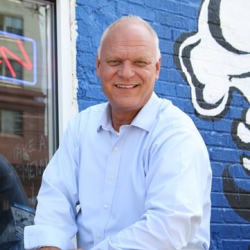In the 1970’s, Atlantic City had a vibrant gay culture. Gay-friendly bars and clubs dotted New York Avenue. Straight visitors also frequented these locations, because of the party atmosphere. By the time the Disco Era was in full swing, most of those clubs were struggling, though.
Property Values Drove away Gay-Friendly Businesses
When casino gambling came to Atlantic City in 1978, land prices and taxes skyrocketed. Many of the gay-friendly businesses struggled to pay the bills, and most eventually closed their doors. Over the next few years, Atlantic City stopped being a hub for the gay, lesbian, and transgender community.
Atlantic City went on with its business. In the 1980’s, the city was prosperous. New casino owners like Donald Trump built in the city, and Atlantic City’s leaders were ambitious enough to talk about surpassing Las Vegas. By the 1990’s, signs of decline were evident. New Jersey’s leaders failed to pass a bill that would have allowed sports betting, while Native American casinos in New York and Connecticut began to draw off customers. In the early 21st century, racetracks in Pennsylvania gained the ability to build slot machine parlors. Meanwhile, the Internet took gambles off casino floors, as some people preferred to bet in the privacy of their own homes.
Troubled Times for Atlantic City
Demographics changed and, with it, Atlantic City found itself in trouble. Since 2006, revenues for the Boardwalk casinos have declined from $5.2 billion to $2.86 billion in 2013. Despite the revenues gained from the launching of legal online casinos and poker rooms in 2013, Atlantic City faces an uncertain future.
In the current economic climate, business and civic leaders in Atlantic City are hoping to entice the American gay and lesbian community to return to the city for their holidays. In fact, marketing to the G&L niche is a key part of their strategy to revitalize the city’s tourism industry. Leaders believe the city’s tradition of welcoming those with alternative lifestyles favors them. The city didn’t drive away these customers–the economy did. Now that the economic factors have changed, the time might be right for a reunion.
Gay Community Events This Summer
Several gay and lesbian events are planned. The number one event is Sand Blast, a 3-day beach party for the gay community which includes event like the all-female beach volleyball tournament, “Lez Volley”. Other events during mid-July Sand Blast party include a purse-tossing competition, an underwear party, and a “Drag Race”.
In September, a drag spoof of the Miss America pageant called “Miss’d America” will take place. That same month, the StandOUT Expo is planned. The StandOUT Expo is a chance for gay, lesbian, bisexual, and transgender people to network.
Atlantic City’s 1st Openly Gay Mayor
Besides the planned events, Mayor Don Guardian dedicated a gay-friendly beach at Park Place, near Bally’s Casino. Mayor Guardian, who is the city’s first openly gay mayor, says the entire city is gay-friendly, though. The mayor expects to see thousands of gay tourist visit the city this summer, and he hopes they come away impressed with what they see.
Don Guardian says he remembers the days from his childhood, when the city welcomed the people with alternative lifestyles of a previous generation. Guardian grew up in the city, and he says the sight of the rainbow flag on businesses in his childhood were a welcome sign, because they showed men and women like himself that these places were a safe haven. While those visiting today may not need to keep their lifestyle as hidden as those of a previous generation, he hopes the same welcome feeling will be evoked this summer.
Casino Gambling Is Not key
The Atlantic City Alliance, a group which markets the resort city, commissioned a report earlier this year of the gay travel in New Jersey and four other states in the region: New York, Delaware, Maryland, and Pennsylvania. The study showed that only 21% of gay tourists come to the city for gambling.
The study dovetails with a general trend with business leaders in Atlantic City. Many are trying to boost the non-gaming related entertainment and leisure activities in the city. In recent years, casino owners and city leaders have tried to market to visitors all the nightclubs, restaurants, shops, spas, and other attractions the city has to offer.
Month-by-month revenue statistics show that those attempts have met with success. Therefore, attempts to market to the gay community help the city as a whole, while bringing a few more gamblers to casino floors in the area.

